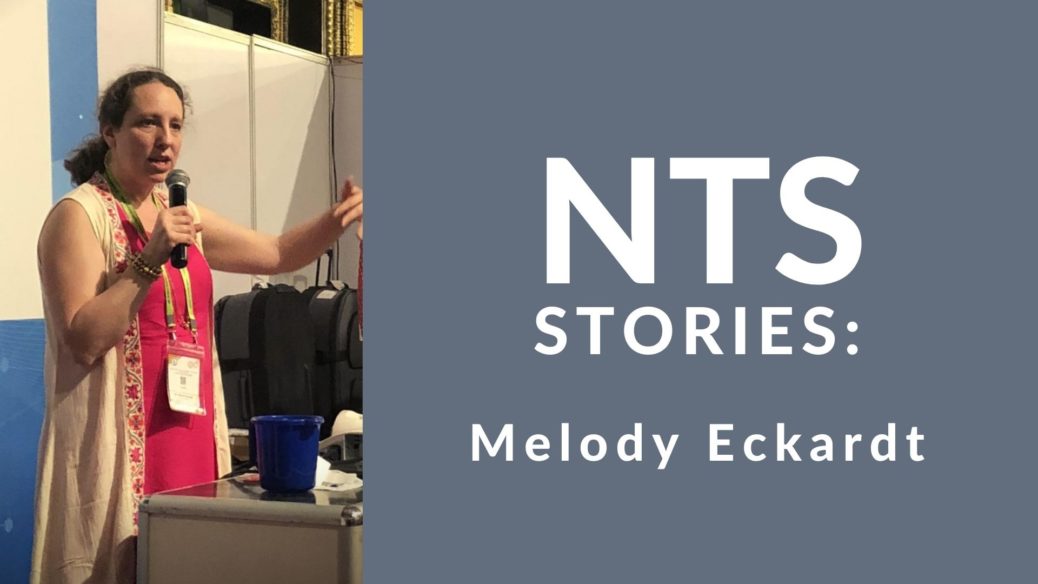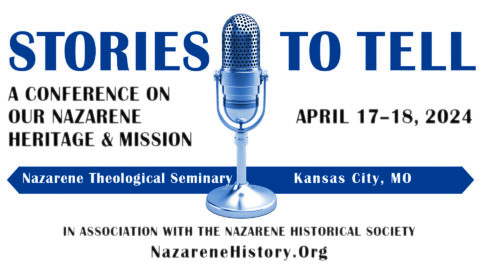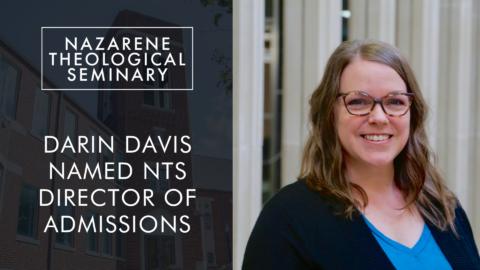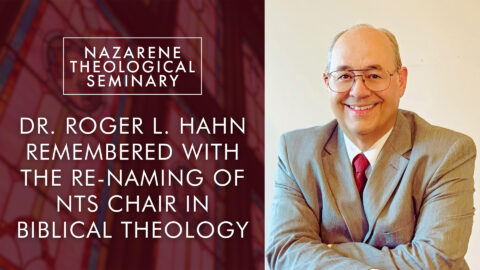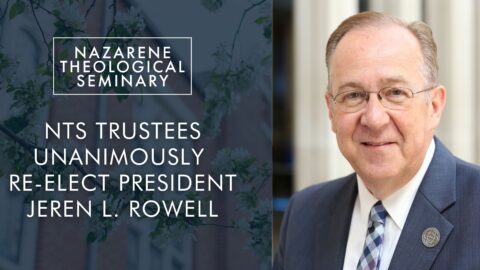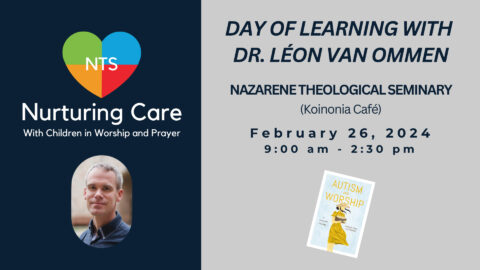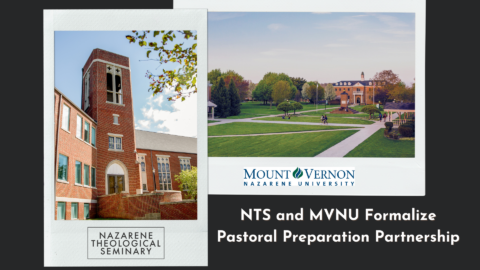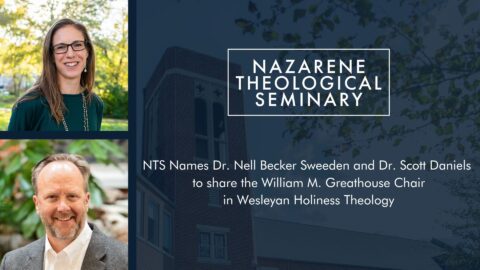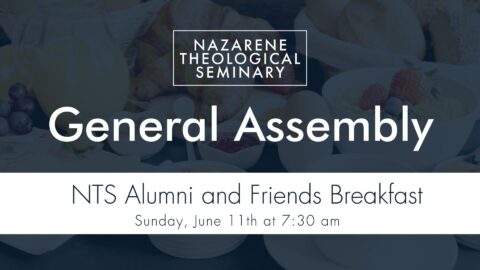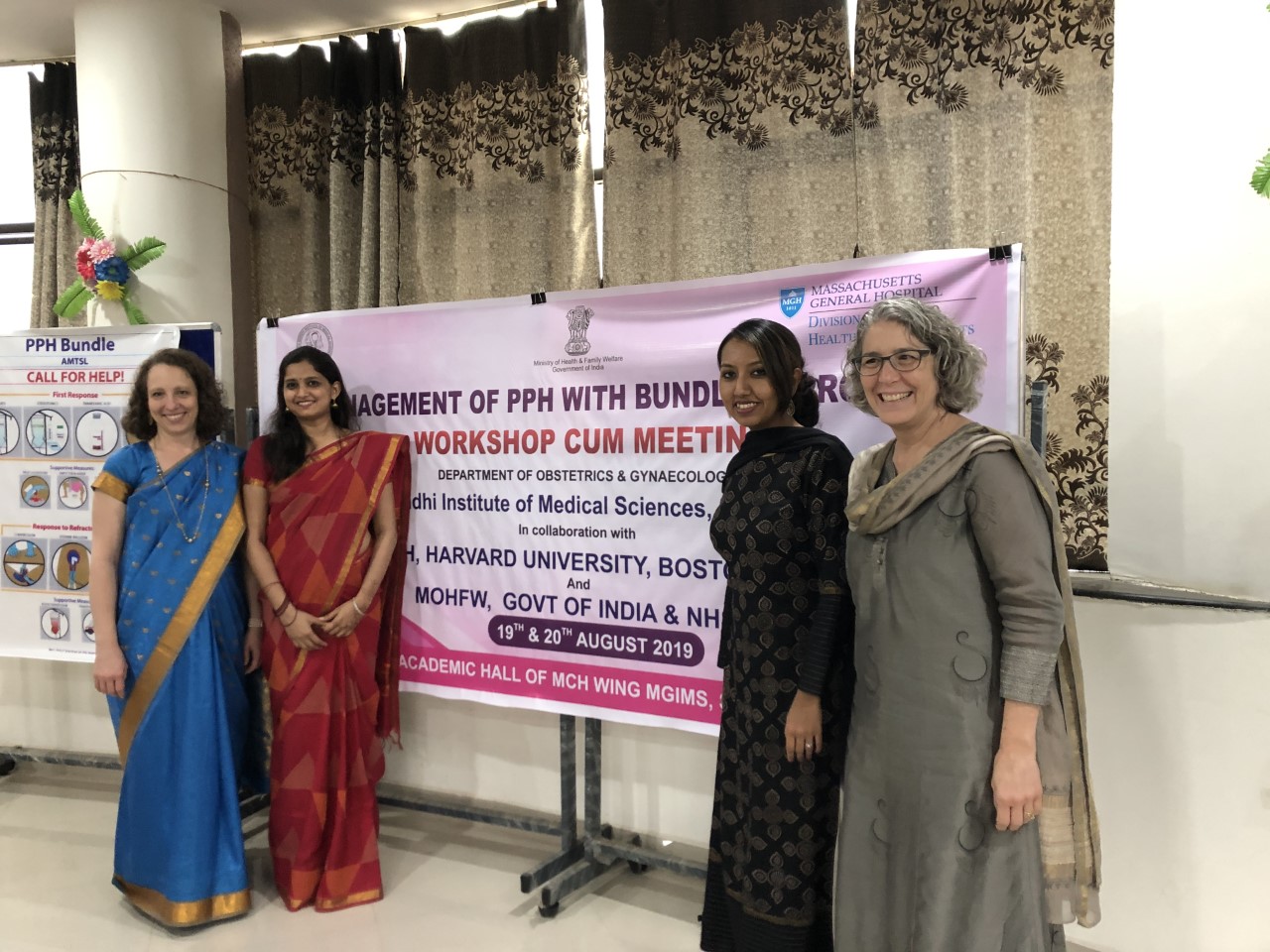
An obstetrician and gynecologist with more than 18 years of clinical experience, Dr. Melody Eckardt has devoted much of her career in medicine to supporting marginalized and disadvantaged people in Boston and around the world.
She has traveled to dozens of countries, teaching people how to use a simple medical device that she helped develop to prevent women from fatally hemorrhaging after delivery.
In the fall of 2020, she enrolled in the Master of Divinity program at Nazarene Theological Seminary to bring a deeper theological foundation to her ministry in medicine. It was a decision she’s considered for about five years.
A path to medical ministry
Eckardt’s call began with a passion for medicine. When she began to consider the medical profession, she chose obstetrics and gynecology because she loved learning about human development and embryology, and she also enjoyed surgery.
“I really liked working with women,” she said. “There’s a lot of connections you make over the development of life, and these parts of life can be very hard and very joyful. Walking with people through those moments is important, and that resonates with me.”
She also was drawn to missions, having joined the missionary club at Messiah University (then Messiah College), where she completed a double major in biology and history.
Before plunging into medical school at Johns Hopkins, in 1992 Eckardt decided to give a year of mission service in Romania through the Church of the Nazarene’s volunteer missions program.
In 1993, she entered medical school at Johns Hopkins University and completed four years of medical residency afterward. During medical school, she married Ralph, whom she met during their undergraduate studies at Messiah. In 2000, while completing her residency in Obstetrics and Gynecology at Tufts Medical Center in Boston, they had their first child.
After several years of private practice and welcoming two more children, Eckardt’s attraction to international medical practice led her to do a master’s degree in global health and population through Harvard Chan School of Public Health. She then became programs director and senior advisor at the Global Health Innovation Lab at Massachusetts General Hospital. There she led a team on creating solutions to obstetric emergencies in Africa, South America, and South Asia.
Saving lives on $5
One of those solutions was a simple, inexpensive uterine balloon that stops internal hemorrhaging following delivery. Often, the difference between life and death for a woman who is hemorrhaging can be less than 2 hours, even at state-of-the-art hospitals in affluent societies.
“There are women who deliver in surgical centers with resources and tools but still don’t make it. In Sudan, with no hospitals around and no health center, people deliver in their huts. Women like that, you have to have something that you can have immediately available. Most of our medication requires cold storage, but there’s no refrigeration. We were trying to come up with an option.”
The Bakri balloon was developed in the United States to stop internal uterine hemorrhaging. The device is inserted into the uterus, then expanded to apply pressure and stop bleeding. But the balloon costs around $400 and was far too expensive for practitioners or patients in rural or economically disadvantaged areas.
Eckardt heard of a similar device created in Bangladesh by tying a condom to the end of a catheter and then filling it with water to expand it. Her team worked to provide similar test kits to people in South Sudan that were safe and cost just 5 USD. A few months later, they learned of 13 women who survived thanks to the devices.
“The fact that it worked was exciting,” said Eckardt. “When you start getting WhatsApps and text stories of women whose lives were saved because of the device, you think, ‘OK, I think I’m on this planet for a reason.’ You start to feel like you’ve accomplished something really useful.”
Eckardt has traveled to dozens of countries training health practitioners how to use the pre-packaged kits, which save precious minutes when a woman is experiencing a life-threatening health crisis.
Missions at home
Back in Boston, Eckardt has found cross-cultural ministry right in her backyard.
While on the innovation team at Massachusetts General Hospital, she was simultaneously Director of Global Health for the Obstetrics Department and Director of Women’s Refugee Health for the Boston Center for Refugee Health and Human Rights at Boston University School of Medicine. In this faculty role, Eckardt helped has asylum seekers access clinical and trauma care.
“It’s the safety net hospital for the area,” she said. “There are lots of immigrants and poverty and drug addiction, and great people who need lots of help. I love the population because you can really connect with them and try to create some good out of real difficulties. And just the mission of the place is very focused on the disadvantaged, which I love.”
Eckardt has been privileged to journey alongside people hanging in painful uncertainty for months, waiting to find out if their request to stay in the United States would be approved.
“When they show up here, they’ve been in a traumatic situation, and they are trying to figure out how to get their life back together, and is this going to be a safe place for me? Am I going to be OK? It is very exciting when you start to see them feel like they are going to be OK.”
Connecting theology to practice
Now that she is dividing her time between clinical practice and a team member role at the Global Health Innovation Lab, Eckardt recognized it was time to fit some theological study into her schedule.
“I really think that the laymen have a very important role to building the kingdom of God, and we are very undertrained to do our role as laypeople. We leave an awful lot to clergy. Laypeople don’t understand our role in evangelism or just creating ways in which God’s kingdom can expand on this earth.”
Eckardt enrolled at NTS because she wanted a theological foundation rooted in the Wesleyan-Holiness tradition.
This year, she studied philosophy of religion, Nazarene history and polity, evangelism through the local church, sabbath and jubilee, and core relationships for Christian ministry. Eckardt said she has especially drawn from the evangelism course as she is involved with outreach through her local church, as well as on philosophy of religion, as it has shed light on her own thinking and faith.
“Everything has been really helpful. I’m constantly thinking about the things I’ve learned, and even about biblical hermeneutics and how I can use this knowledge and these skills as a lay member of Christ’s Body.”
Learn more about studying at NTS at www.nts.edu/info.

